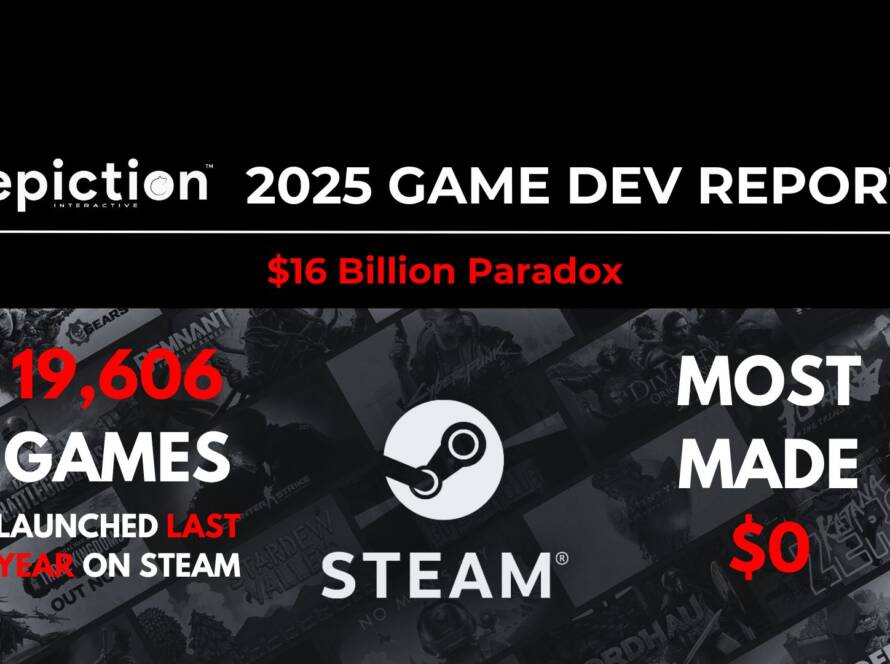As we inch closer to the year 2042, the gaming industry is poised to enter an exciting new frontier driven by emerging technologies, evolving player expectations, and innovative design philosophies. Virtual realities and AI tools are transforming games in every way. The future will change how we create, play, and experience them. If you’ve ever wondered what the next two decades hold for video games, let’s explore the evolution that awaits game design, development, and publishing.
Hyper-Immersive Gaming Experiences

By 2042, the boundary between virtual and physical worlds will blur further with the evolution of Virtual Reality (VR), Augmented Reality (AR), and Extended Reality (XR). Current VR headsets offer impressive visuals, but future versions will take immersion to the next level. Technologies like brain-computer interfaces (BCI), haptic suits, and 4D environments will enable full sensory experiences.
Imagine not just seeing and hearing the game but also feeling the heat of a desert wind, smelling the freshness of a virtual forest, or moving through physically stimulating environments. The role of the ‘player’ could evolve into a personal journey. Actions might trigger both emotional and neural responses, making the experience more profound.
Inspiration: Game Development 2042: The Future of Game Design, Development, and Publishingby Tim Fields

For those fascinated by where the gaming industry is heading, Game Development 2042 is one of the best books for game development enthusiasts. It serves as an inspiring blueprint for the future, diving deeper into technological innovations, design trends, and the industry shifts expected to redefine game development as we know it.
AI as a Co-Creator
The development landscape is already shifting with Artificial Intelligence (AI) automating complex processes, but by 2042, AI will no longer be just a tool—it will be a collaborator. AI systems will generate realistic assets, dynamic environments, and rich storylines. This will let developers focus on innovation rather than routine tasks.
Game writing and storytelling will advance significantly. AI will create personalized plotlines based on players’ emotions and decisions. Each gamer could experience unique, tailored story arcs. For indie developers, this means leveling the playing field with big studios as AI tools democratize game design, eliminating traditional cost and time barriers.
Player-Centric Game Worlds

Games of the future will likely revolve around dynamic, user-driven ecosystems. Instead of linear or scripted content, procedurally generated, open-ended environments will evolve based on the player’s in-game choices—a “living game world.”
For example, cities in role-playing games (RPGs) could grow, adapt, and respond realistically to how players interact with NPCs and systems. Virtual communities and online spaces like the metaverse may host self-sustaining, infinite worlds where players can build, own, and live. Games will not be confined to mere entertainment but will mirror social, economic, and cultural constructs.
The Publishing Paradigm Shift
Game publishing will transform drastically by 2042, driven by trends in decentralization and accessibility. Streaming technology will dominate, removing hardware barriers and making high-fidelity games accessible through any device. Game-as-a-Service (GaaS), subscription models, and cloud-based gaming platforms will continue to evolve, allowing players to access massive libraries with minimal setup.
Emerging blockchain technologies, such as decentralized game publishing and NFT-backed assets, may change the industry’s monetization. Players could own, trade, and monetize their digital assets across games seamlessly, giving them real ownership over in-game economies.
The Ethical Landscape
As technology evolves, so too must the ethical considerations around gaming. From AI-driven game narratives to player data collection and inclusivity, developers will need to navigate these areas carefully. Mental health, accessibility for differently-abled gamers, and safety within virtual spaces will become essential focal points in creating ethical, player-first experiences.
Developers and players alike will shape the future of gaming as an inclusive art form that respects boundaries while pushing creative limits.
The Future Is Now
While 2042 may feel far off, many of these trends are already unfolding today. Technologies like AI-powered tools, VR advancements, and blockchain integration are gradually becoming mainstream. As we dream of a future brimming with interactive storytelling and immersive realities, one truth remains constant: game development will always be fueled by creativity, innovation, and the joy of play.
Are you ready to imagine, create, and experience games of 2042?
What do you think gaming will look like in the future? Let us know in the comments and stay ahead by joining the conversation!





1 Comment
Preeti
This is so true like I was wondering the same thing if its a good idea to dive deeper in this field, does it even make sense to become a game dev.